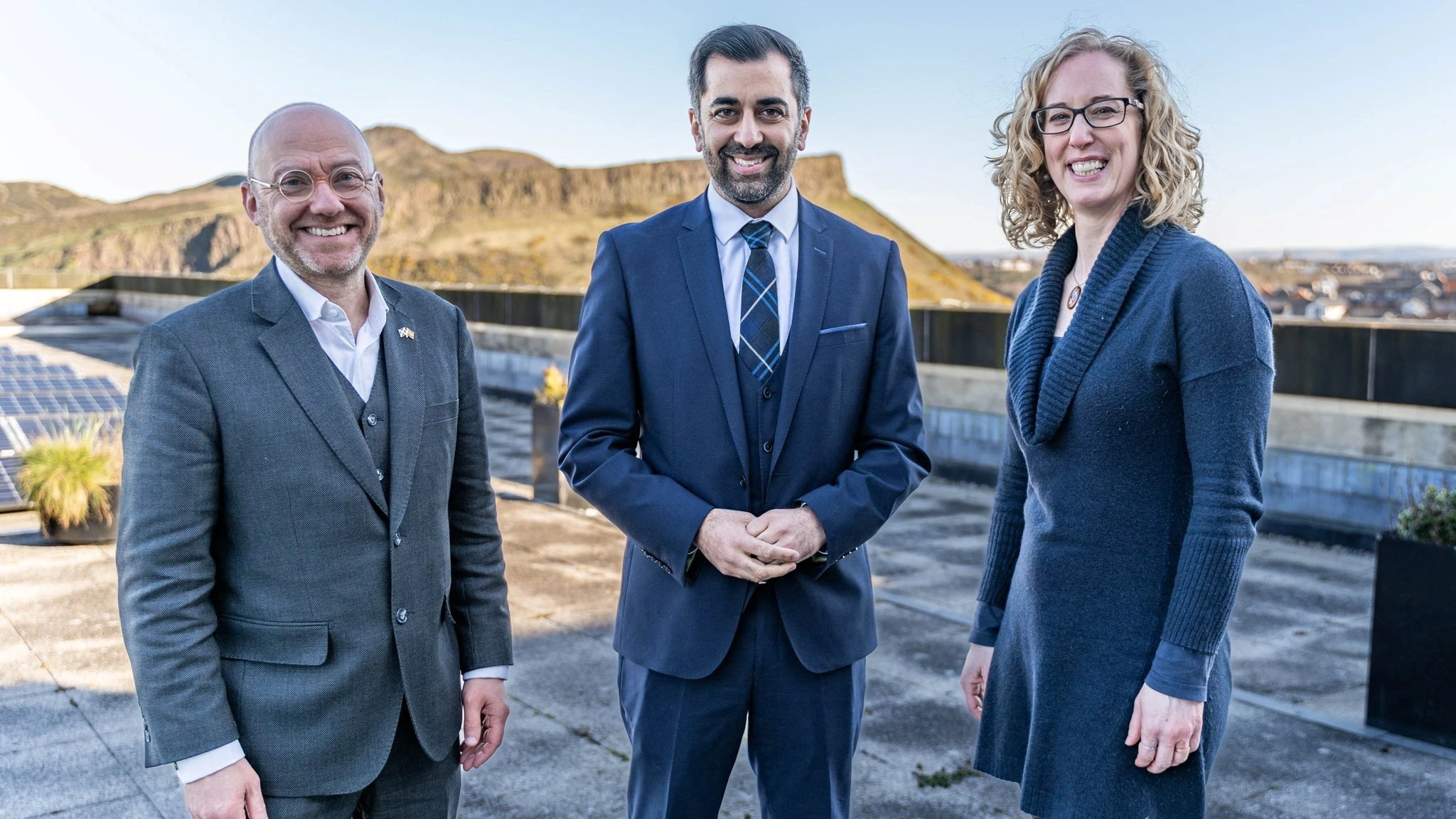Scottish leader scraps coalition deal with Greens

Stay tuned with 24 News HD Android App

The leader of the pro-independence Scottish National Party on Thursday ended a coalition deal with the Greens, leaving him facing fresh pressure as the head of a minority government in Edinburgh.
The announcement by First Minister Humza Yousaf came a week after the devolved government abandoned an ambitious climate pledge sparking tension with its junior partner.
It is the latest setback for the SNP, which has been hit by internal squabbling, resignations, fraud claims and a fall in support before this year's UK general election.
Yousaf, who took over from Nicola Sturgeon in March last year, denied that the end of the deal made him a lame duck leader, insisting it showed "leadership" to recognise it was no longer working.
He told reporters the decision had been made "following a discussion with my cabinet this morning".
"After careful consideration I believe that going forward... it's in the best interest of the people of Scotland to pursue a different arrangement," he said.
"I have terminated the Bute House Agreement with immediate effect," he said, admitting that ruling as a minority government would be "tough" but promising to work with all parties in parliament.
The announcement sparked condemnation both from the Greens and Scottish Conservatives.
Green co-leader Lorna Slater called it "an act of political cowardice by the SNP, who are selling out future generations to appease the most reactionary forces in the country".
Scottish Conservatives chairman Craig Hoy said it highlighted Yousaf's "inept" leadership.
"Humza Yousaf's year as SNP leader has been a disastrous mix of scandals, infighting and policy U-turns," he said.
Net zero
The SNP-Greens deal, known as the Bute House Agreement after the Scottish first minister's official residence in Edinburgh, was signed in 2021.
It brought the Green Party into government for the first time anywhere in the UK, where devolved administrations in Scotland, Wales and Northern Ireland have limited powers in areas such as environment, health, transport and social policy.
It also gave the SNP a majority at the parliament at Holyrood when the votes of its members of Scottish parliament were combined with those of the seven Greens members, crucially on independence.
The Scottish Greens also support breaking away from the rest of the United Kingdom.
As part of the deal, Greens co-leaders Patrick Harvie and Slater were made junior ministers.
The collapse of the deal comes after the Scottish government announced on April 18 that it would scrap its target to reduce carbon emissions by 75 percent by 2030 after the UK's climate change advisory committee described it as "beyond credible".
The UK Climate Change Committee (CCC) last month sharply criticised Scotland for repeatedly failing to achieve its climate targets.
The required acceleration in emissions reduction in Scotland was now "beyond what is credible", due to inadequate efforts in areas including home heating, transport, farming and nature restoration, it said.
Yousaf vowed that Scotland would still meet its target of reaching net zero by 2045.
At a UK-wide level, his SNP currently has 43 members of parliament at Westminster but is expected to lose several to a resurgent Labour party in Scotland, which is tipped to form the next UK government.
The SNP has a seven-point lead over Labour in voting intentions, according to the polling agency Ipsos, but that is down from 12 points a year ago.
Political observers believe the SNP is too fixated on independence and not focused enough on the cost-of-living crisis that has hit Scotland and the UK.
